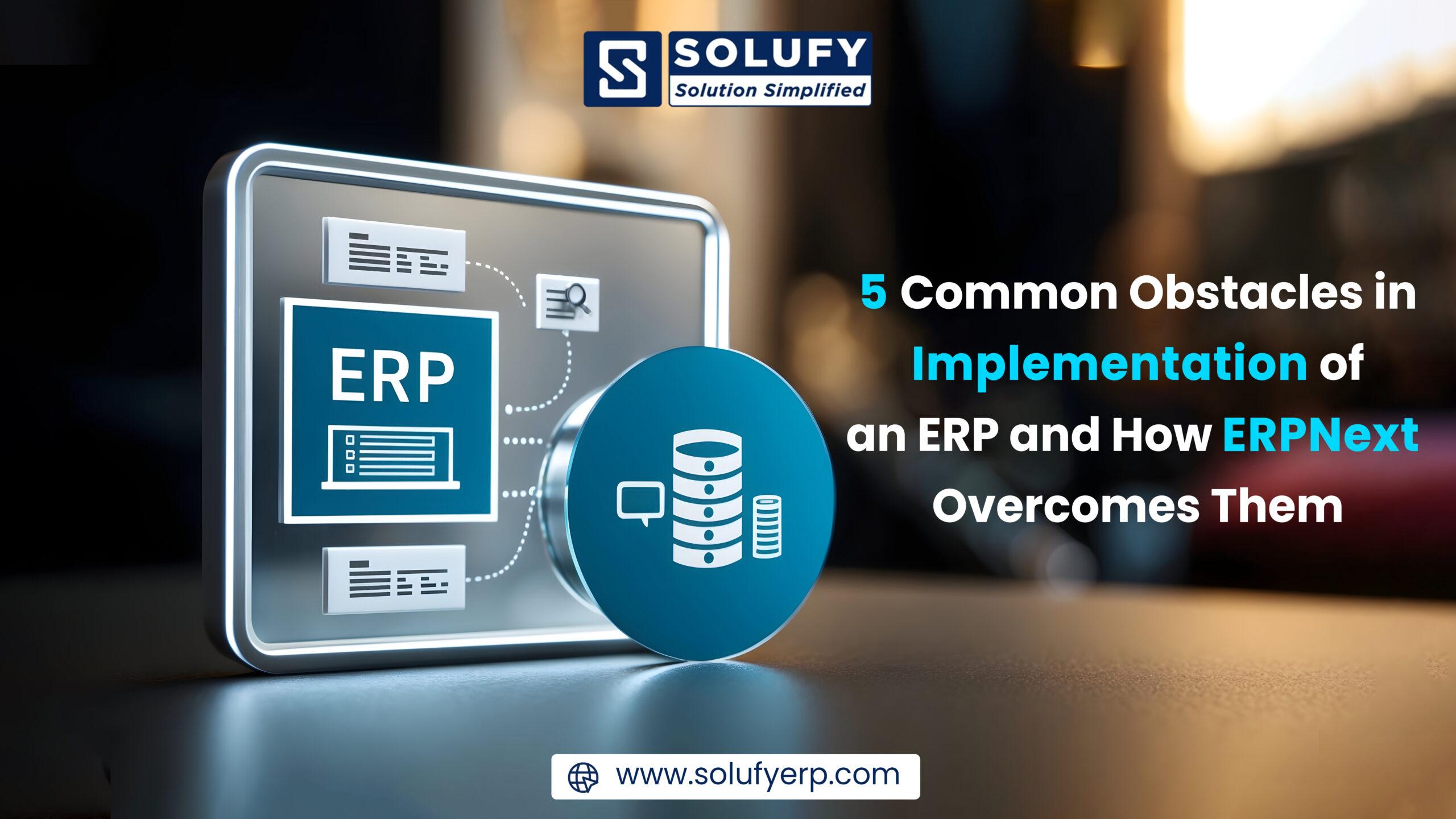Implementing an Enterprise Resource Planning system like ERPNext can simplify business operations to a great extent. Yet, many organizations still face certain obstacles while implementing an ERP. Find below some common challenges with ERP and how ERPNext counters these issues.
1. Data Migration
Challenge: Huge Amounts of Data Migration-The challenge with multi-source, complex, and time consuming. A number of error-prone possibilities, such as corruption, duplication, and incompatibility.
ERPNext Solution: ETL Ready-ERPNext boasts robust data migration tools, including ETL (Extract, Transform, Load). It encourages a meticulous data audit to eliminate inconsistencies in data before migration and is equipped with validation checks so that integrity of the data is not compromised.
2. User Adoption and Training
Issue: Rejection of an implementation by employees of a new ERP system is one reason why implementation may take more time and may not be completely smooth. Lack of proper training would mean that users would require more time to get acquainted with the new procedures, hence rendering the implementation ineffective.
ERPNext Solution: In this way, ERPNext has reduced the onerous process of onboarding the users by providing comprehensive documentation and training programs. The engagement of certified implementation partners would further improve any training efforts undertaken in equipping each and every session to fit the requirements of an organization, thereby minimizing resistance toward change and increasing the confidence of the users.

3. Integration with Existing Systems
Challenge: The existing software sometimes has interfacing issues with ERPNext due to compatibility as well as a difference in the system architecture and lead to inefficiency or loss to operations if not managed properly.
ERPNext Solution: Such middleware and APIs make it possible for ERPNext to integrate with third-party applications seamlessly. This may ensure that systems can exchange data seamlessly. Thus, an integration strategy will clarify what should be integrated first, based on business functionalities’ priorities. The more important functionalities, therefore, should be available from the outset.
4. Cost and Timelines Management
Challenge: If not monitored closely, ERP implementations run the risk of going out of budget or timeline. Any kind of delay and cost overrun might dent stakeholder confidence and strain resources.
ERPNext Solution: High-performance project management is necessary for successful roll-out. ERPNext promotes clear milestone setting, budgetary contingency on unanticipated expenditures, and a regular update on the status to stakeholders. A proactively managed effort ensures that the projects are kept on track and within the budget confines.
5. Project Management and Scope Creep
Challenge: ERP implementation experiences creep without proper project management. More and more features get added without adequate control and suddenly timelines begin to slip out of one’s hands and overruns in budget.
ERPNext Solution: Well-structured project management is needed, including proper roles and responsibilities. In short, proper utilization of project management tools will monitor progress and access the management of resources. The project team ensures that all scope changes have an official change management process so that the Implementation always stays on course with its initial objectives.
Conclusion
In conclusion, though there are associated challenges with the implementation of an ERP system like ERPNext, those challenges provide foresight to take proactive measures for a smoother transition. With the help of all the features and support provided by ERPNext, businesses will be able to better negotiate challenges and richly deploy them.


